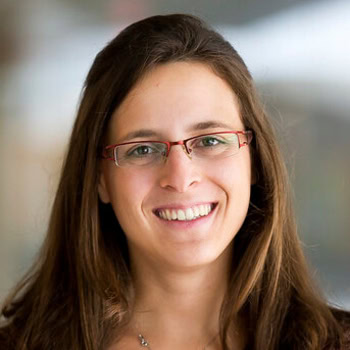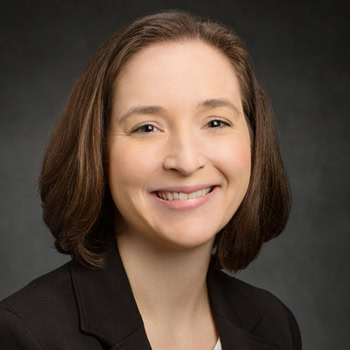
Four emerging leaders at Michigan Engineering recognized by White House
The honorees’ work advances materials for clean energy and load-bearing applications, graph theory, and healthier cultures in engineering education.

The honorees’ work advances materials for clean energy and load-bearing applications, graph theory, and healthier cultures in engineering education.
Four Michigan Engineering researchers have received the Presidential Early Career Award for Scientists and Engineers, the highest honor the United States government bestows on scientists and engineers beginning their independent research careers.
They are among more than 400 researchers whose work is funded by a range of federal agencies who were announced as PECASE winners by the White House, seven of whom are U-M researchers.

Kevin Field, an associate professor of nuclear engineering and radiological science, was nominated by the Department of Energy (DOE). He is best known for using advanced characterization methods and accelerated analysis techniques to understand radiation effects in materials for fission and fusion energy systems.
His Early Career Award from the DOE is enabling his group to explore the complex changes that steels undergo in fusion energy devices. They are working to improve the understanding of how helium alters defects that arise in steel structures due to neutrons from fusion, helping pave the way for durable structural components in future clean energy systems.
“The Presidential Early Career Award for Scientists and Engineers is a large honor. For myself specifically, there are only a handful of people in my sub-field—nuclear materials—that have won since they began the program in 1996,” said Field.
He counts himself lucky that one of those others was a mentor early in his career—Jeremy Busby, a former adjunct professor of nuclear engineering and radiological sciences at U-M and now an associate laboratory director at Oak Ridge National Laboratory.

Danai Koutra, an associate professor of computer science and engineering, was nominated by the National Science Foundation (NSF). She has made key contributions to the development of efficient and interpretable computational methods for discovering and summarizing unknown patterns in large, complex data.
Her work leverages the inherent connections and dependencies in real-world data, which form networks or graphs. It has had numerous practical applications, including neuroscience, precision health, recommender systems and deep neural networks. For example, one line of work advances precision and mental health diagnostics by developing sophisticated techniques that learn from and summarize patterns in brain activity.
“I am deeply honored to be included in this outstanding cohort of scientists and engineers,” Koutra said. “This award recognizes the importance and impact of the work of my entire research group, as well as the support of wonderful collaborators and mentors, which has made this research possible. It not only celebrates past achievements, but also acts as an inspiration to push the boundaries of innovation in the field of graph mining and learning, as we strive to pursue high-impact applications that benefit society.”

Karin Jensen, an assistant professor of biomedical engineering, was nominated by the NSF. Her work in engineering education research explores mental health and well-being, producing evidence-based guidance for supporting well-being and a positive, healthy culture more broadly.
Her Faculty Early Career Award from the NSF focused on undergraduate students, and a subsequent grant investigates faculty mental health and well-being. She also studies broadening participation in engineering.
“I am honored by this award and the National Science Foundation’s continued support of our work on the critical topic of mental health and well-being. I am grateful for my research team members, mentors, colleagues, students, family, and friends,” said Jensen.

Ashwin Shahani, an associate professor of materials science and engineering, was nominated by the Department of Defense. He uses X-ray imaging techniques to observe in 3D how solid materials behave under changing conditions in real-time, which can help improve materials manufacturing.
With the funds from PECASE, Shahani plans to study how certain microscopic boundaries that separate the crystalline “building blocks” within metals evolve over time. These internal interfaces play a major role in determining a metal’s overall strength, and manipulating them could result in stronger metals for load-bearing applications. With his lab’s X-ray imaging techniques, Shahani will determine the character and connectivity of the interfaces, providing one-of-a-kind insight to manufacturers to create novel microstructures optimized for specific uses or repair defects.
“This work builds on a passion for scientific research and inquiry, and I’m so honored that it has been recognized at the highest levels of the federal government,” said Shahani.
Additional reporting by Sara Norman and Michele Santillan